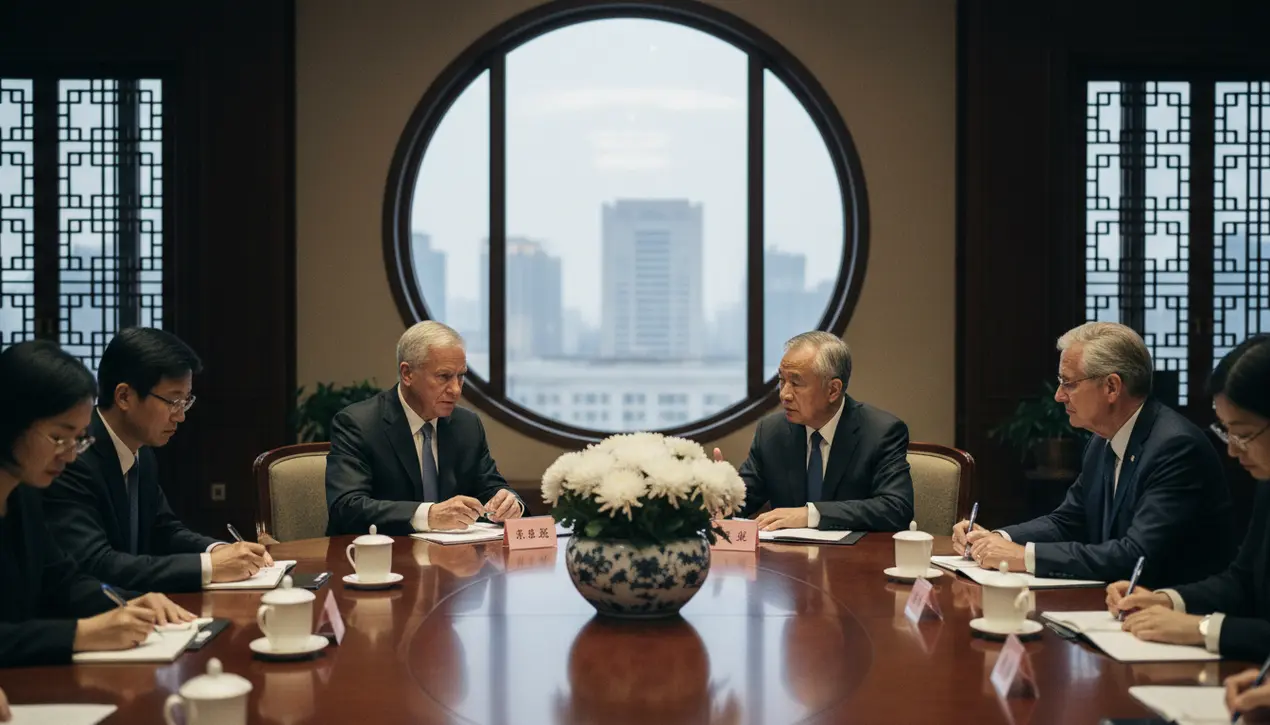
PoliticsdiplomacyTrade Agreements
Chinese Minister Urges Deeper US Trade Cooperation in Meeting
RO
Robert Hayes
1 day ago7 min read
In a significant diplomatic engagement that underscores the fragile state of Sino-American relations, Chinese Commerce Minister Wang Wentao convened with US Ambassador David Perdue in Beijing, delivering a carefully calibrated message that blended economic pragmatism with geopolitical necessity. The meeting, held against a backdrop of persistent trade tensions and strategic competition, saw Minister Wang articulate a vision of managed coexistence, urging both nations to foster a 'correct understanding' of their intertwined destinies.This rhetoric, disseminated through an official ministry statement, is not merely diplomatic boilerplate but a strategic gambit in a long-running contest for global economic primacy, reminiscent of the complex interdependencies that characterized Cold War-era superpower relations. The minister's call for joint efforts to mitigate uncertainties and expand trade cooperation represents a critical attempt to stabilize a relationship that has been strained by everything from tariffs and technology export controls to disputes over Taiwan and the South China Sea.Historically, US-China trade has been a double-edged sword, fueling unprecedented growth in China while providing American consumers with affordable goods and corporations with vast manufacturing capacity, yet this symbiosis has been severely tested in recent years. The Biden administration's continuation of a tough stance on technology transfers, particularly regarding semiconductors, and its pursuit of 'friend-shoring' supply chains away from China, has created a landscape of profound uncertainty for global businesses.Minister Wang's emphasis on achieving 'win-win outcomes' is a direct appeal to the powerful commercial interests in both countries that have long benefited from open trade, even as their respective governments navigate an increasingly adversarial security relationship. The presence of Ambassador Perdue, a political appointee with deep roots in American business, is itself telling, suggesting channels of communication remain open despite the public acrimony.Analysts will be watching closely to see if this dialogue translates into tangible progress, such as a potential reduction of Section 301 tariffs or a thaw in the technological cold war, or if it merely serves as a temporary pressure valve. The broader context involves not just bilateral trade figures but a fundamental reordering of the global economic order, with China pushing for alternatives to US-dominated financial institutions and the dollar system.For the United States, the challenge is to counter China's economic practices deemed unfair without triggering a full-scale decoupling that could wreak havoc on the global economy and fuel inflation. This high-wire act requires a nuanced strategy that combines deterrence with diplomacy, a balance that has proven elusive for successive administrations. The outcome of this ongoing dialogue will have profound consequences, influencing everything from the price of consumer goods in American stores to the strategic alignment of nations across the Indo-Pacific, ultimately determining whether the two giants can forge a stable, if competitive, coexistence or if their economic fates are destined for a more destructive divergence.
#editorial picks news
#US-China relations
#trade cooperation
#commerce minister
#bilateral talks
#economic partnership
Stay Informed. Act Smarter.
Get weekly highlights, major headlines, and expert insights — then put your knowledge to work in our live prediction markets.
Related News
Comments
Loading comments...
© 2025 Outpoll Service LTD. All rights reserved.